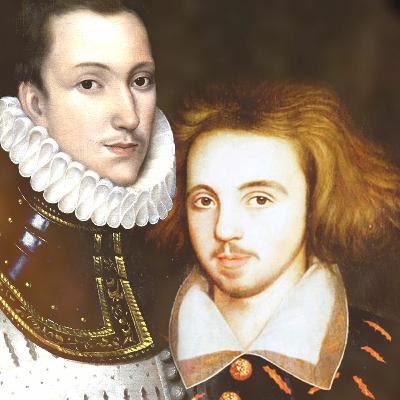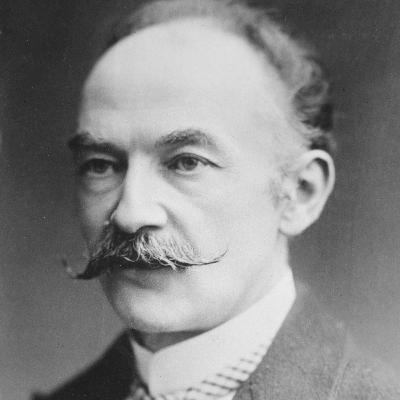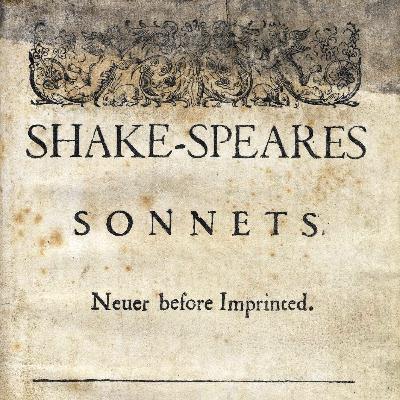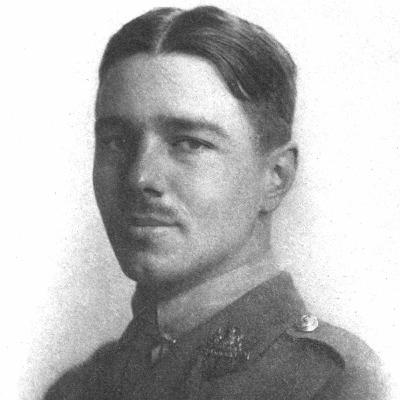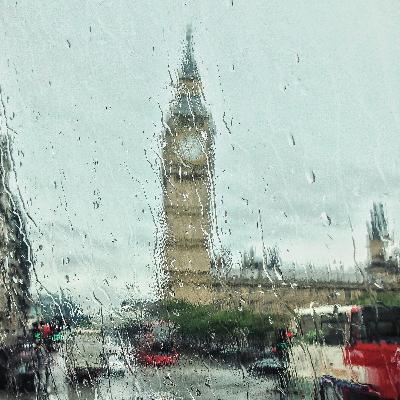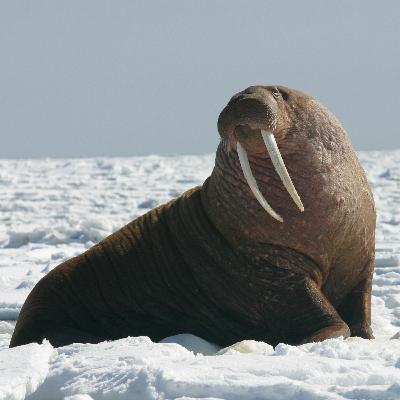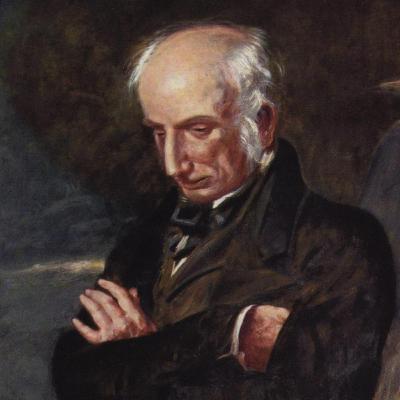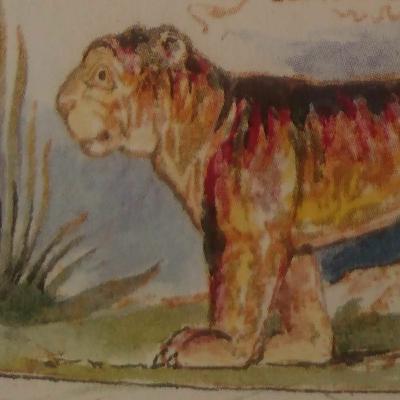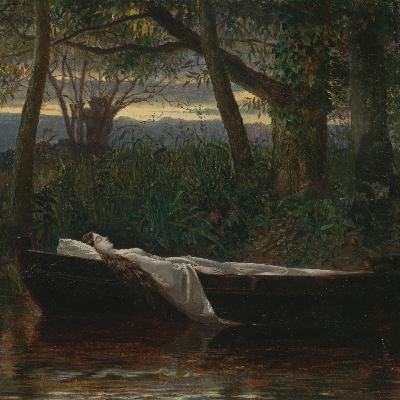Discover Requisite Words Podcast
Requisite Words Podcast

25 Episodes
Reverse
We wrap up 2020 with several pieces by Sir Philip Sidney and Christopher Marlowe.
Episode Music:
Be Chillin’ by Alexander Nakarada | www.serpentsoundstudios.com
Music promoted by www.free-stock-music.com
Attribution 4.0 International (CC BY 4.0)
creativecommons.org/licenses/by/4.0/
Pictures are in the public domain, from wikimedia.org.
After a very 2020 hiatus, we're back with two of Thomas Hardy's poems, God's Funeral and The Darkling Thrush.
Episode Music:
Be Chillin’ by Alexander Nakarada | www.serpentsoundstudios.com
Music promoted by www.free-stock-music.com
Attribution 4.0 International (CC BY 4.0)
creativecommons.org/licenses/by/4.0/
Photo is in the public domain, from wikimedia.org
This episode we share the first of Shakespeare's Sonnets to the Dark Lady, Sonnet 127, alongside a brief contextual reading of the piece.
This episode was inspired by Patrick Stewart's A Sonnet a Day initiative, which has been a source of much delight in recent months, but overlooked this one piece during a break.
Episode Music:
Be Chillin’ by Alexander Nakarada | www.serpentsoundstudios.com
Music promoted by www.free-stock-music.com
Attribution 4.0 International (CC BY 4.0)
creativecommons.org/licenses/by/4.0/
Photo is in the public domain, from wikimedia.org
We attempt to balance out the bawdy and bluest of the Bard with a few of his nicer Sonnets.
Featuring Sonnets 17, 18, 19 and 29.
Episode Music:
Be Chillin’ by Alexander Nakarada | www.serpentsoundstudios.com
Music promoted by www.free-stock-music.com
Attribution 4.0 International (CC BY 4.0)
creativecommons.org/licenses/by/4.0/
Photo by Shamia Casiano from Pexels.com
This episode is for anyone who's ever stared at a blank page, waiting for the words to come.
We explore one possible solution, using a walkthrough of an untitled poem I published on Twitter, in a thread started by @scotianselkie.
Episode Music:
Be Chillin’ by Alexander Nakarada | www.serpentsoundstudios.com
Music promoted by www.free-stock-music.com
Attribution 4.0 International (CC BY 4.0)
creativecommons.org/licenses/by/4.0/
Photo is by Pixabay, courtesy of Pexels | https://www.pexels.com/photo/blank-bloom-blossom-business-356372/
By popular request, a sequel to Episode Seven. Reeling from the hit success of Sonnet 135, Shakespeare penned Sonnet 136, which continued the argument for... well, a close reading of the Bard's breeches.
Not safe for work, children, or anyone who thinks the world has heard enough dick jokes.
Episode Music:
Be Chillin’ by Alexander Nakarada | www.serpentsoundstudios.com
Music promoted by www.free-stock-music.com
Attribution 4.0 International (CC BY 4.0)
creativecommons.org/licenses/by/4.0/
Image: Public Domain portrait of William Shakespeare, sans junk.
Note: The title of this episode was edited on 5 June, after one of the words was appropriated by fascist fringe groups.
This episode is for anyone who wants to spend a little time getting creative while staying at home. It’s kid-safe, although it contains farts, and acknowledges the existence of adult themes.
Kia kaha, whānau.
Episode Music:
Be Chillin’ by Alexander Nakarada | www.serpentsoundstudios.com
Music promoted by www.free-stock-music.com
Attribution 4.0 International (CC BY 4.0)
creativecommons.org/licenses/by/4.0/
Photo is by Sharon McCutcheon, courtesy of Pexels | https://www.pexels.com/photo/4k-wallpaper-adorable-blur-boy-1148998/
Content note: A brief discussion of the novel coronavirus pandemic. Also contains a dog.
Anxiety and similar conditions can be exacerbated in times of uncertainty, so future episodes during the pandemic will feature content warnings where relevant. While the poems shared may remain directly or tangentially relevant to the global situation, mention of Covid-19 will be avoided after this episode.
Two of Elizabeth Barrett Browning's works feature in this episode, recorded from self-isolation.
Episode Music:
Be Chillin’ by Alexander Nakarada | www.serpentsoundstudios.com
Music promoted by www.free-stock-music.com
Attribution 4.0 International (CC BY 4.0)
creativecommons.org/licenses/by/4.0/
Photo is by Dominika Roseclay, courtesy of Pexels | https://www.pexels.com/photo/closeup-photo-of-red-dachshund-895259/
This episode discusses "Still I Rise," by Maya Angelou, in unpacking why you're hearing so much historical (if still relevant) poetry in these parts, and little from the diverse voices of the now.
Read Still I Rise at https://www.poetryfoundation.org/poems/46446/still-i-rise
Watch and listen to Maya Angelou perform her work at https://www.youtube.com/watch?v=qviM_GnJbOM
Episode Music:
Be Chillin’ by Alexander Nakarada | www.serpentsoundstudios.com
Music promoted by www.free-stock-music.com
Attribution 4.0 International (CC BY 4.0)
creativecommons.org/licenses/by/4.0/
Image of Maya Angelou is in the public domain, sourced from Wikimedia.org
We celebrate a somewhat healthier love in this Valentine's Day episode, with Mary Shelley's "Oh, come to me in dreams, my love!" and provide some context for the Greek myth it draws on.
For more on the mythology of Psyche and Eros, the following links are a good starting point:
https://www.greeka.com/greece-myths/eros-psyche/
https://www.greekmythology.com/Myths/The_Myths/Eros_and_Psyche/eros_and_psyche.html
https://en.wikipedia.org/wiki/Cupid_and_Psyche
Episode Music:
Be Chillin’ by Alexander Nakarada | www.serpentsoundstudios.com
Music promoted by www.free-stock-music.com
Attribution 4.0 International (CC BY 4.0)
creativecommons.org/licenses/by/4.0/
Image or Eros and Psyche is in the public domain, sourced from Wikimedia.org
Exploring Robert Browning's "Porphyria's Lover" as a murder ballad that arguably... isn't.
In this episode we consider another reading of the work, in which Browning's poem parodies and logically dismantles problematic tropes about love.
Episode Music:
Be Chillin’ by Alexander Nakarada | www.serpentsoundstudios.com
Music promoted by www.free-stock-music.com
Attribution 4.0 International (CC BY 4.0)
creativecommons.org/licenses/by/4.0/
Picture is by Herbert Rose Barraud, a Woodburytype portrait of Robert Browning, and is in the Public Domain. Sourced from Wikimedia.org
We haven't had the most auspicious start to the new decade. This episode we share two poems that might offer, respectively, a challenge to critical awareness and a gentle exercise in empathy.
Featuring "Porphyria's Lover" by Robert Browning and "Dulce et Decorum Est" by Wilfred Owen.
Episode Music:
Be Chillin’ by Alexander Nakarada | www.serpentsoundstudios.com
Music promoted by www.free-stock-music.com
Attribution 4.0 International (CC BY 4.0)
creativecommons.org/licenses/by/4.0/
Image reproduced from "Poems by Wilfred Owen," 1920, sourced from wikimedia.org and in the public domain.
Poetry meets politics as we misappropriate Christina Rosetti's "Shut Out" in honour of the UK election (underway as this episode goes live).
Episode Music:
Be Chillin’ by Alexander Nakarada | www.serpentsoundstudios.com
Music promoted by www.free-stock-music.com
Attribution 4.0 International (CC BY 4.0)
creativecommons.org/licenses/by/4.0/
Photo: London, UK, by Sid Ali from Pexels.com
A celebration of the sonnet form, featuring a catch-22 resolved in the first English sonnet sequence, by Anne Locke, two works by Charlotte Smith, and the sonnet that accompanies The Statue of Liberty - The New Colossus, by Emma Lazarus.
Episode Music:
Be Chillin’ by Alexander Nakarada | www.serpentsoundstudios.com
Music promoted by www.free-stock-music.com
Attribution 4.0 International (CC BY 4.0)
creativecommons.org/licenses/by/4.0/
Image by Matthis Volquardsen from Pexels (https://www.pexels.com/photo/statue-of-liberty-2179606/)
There is a certain frurgle
whose contempules I abhor
but although my stronders gurgle
by his whorkling am I zor
This episode is brought to you with a light spattering of paint, a lungful of fumes, and two nonsense poems that I should have but didn't have memorised: Lewis Carroll's Jabberwocky and The Walrus and the Carpenter.
Episode Music:
Be Chillin’ by Alexander Nakarada | www.serpentsoundstudios.com
Music promoted by www.free-stock-music.com
Attribution 4.0 International (CC BY 4.0)
creativecommons.org/licenses/by/4.0/
Image: Public domain courtesy of Joel Garlich-Miller, U.S. Fish and Wildlife Service, sourced through Wikimedia.org
Wordsworth's Lucy Poems are a five part meditation on love in the face of grief. Among the finest Romantic works, we share the works and unpack each part of the sequence, and they way they fit together.
Episode Music:
Be Chillin’ by Alexander Nakarada | www.serpentsoundstudios.com
Music promoted by www.free-stock-music.com
Attribution 4.0 International (CC BY 4.0)
creativecommons.org/licenses/by/4.0/
Image: William Wordsworth: A Life. Public domain reproduction from wikimedia.org
Continuing last episode's sampler of poems that appear and influence later and contemporaneous works, this episode includes works by Elizabeth Barrett Browning, Emily Dickinson, Edmund Spenser, Percy Shelley, and more Elizabeth Barrett Browning, because we can.
References to xkcd.com include numbers 788 and 1557.
Episode Music:
Be Chillin’ by Alexander Nakarada | www.serpentsoundstudios.com
Music promoted by www.free-stock-music.com
Attribution 4.0 International (CC BY 4.0)
creativecommons.org/licenses/by/4.0/
Image: Daguerrotype of Emily Dickinson, Public Domain image courtesy of Wikimedia.org
Poetry isn't always high profile, but we encounter more of it than we might realise. From The Silence of the Lambs, to The Dark Tower, to Zen and the Art of Motorcycle Maintenance, poetry often seeps into other genres, where it can inhabit the reader's mind long after the prose has escaped.
In this episode I share a few poems hidden away in other works - strongly biased towards books I've read recently or within sight of my desk.
Includes poems by Tolkien, Byron, Blake, Wordsworth, and Poe.
Episode Music:
Be Chillin’ by Alexander Nakarada | www.serpentsoundstudios.com
Music promoted by www.free-stock-music.com
Attribution 4.0 International (CC BY 4.0)
creativecommons.org/licenses/by/4.0/
Image: Photo by Peter Ravlich, various book covers represented under Fair Use.
We get down and uncomfortably dirty with the Bard this episode, in pursuit of ambiguity and insight with William Blake's "The Tyger," Shakespeare's Sonnets 130 and 135, and Christina Rossetti's "'No, Thank You, John'".
Episode Music:
Be Chillin’ by Alexander Nakarada | www.serpentsoundstudios.com
Music promoted by www.free-stock-music.com
Attribution 4.0 International (CC BY 4.0)
creativecommons.org/licenses/by/4.0/
Image: "The Tyger" from William Blake's "Songs of Innocence and Experience". Photo by Peter Ravlich and reproduced under Fair Use.
We examine three readings of Tennyson's The Lady of Shalott, through the lenses of Creativity, Feminism, and Adolescence.
Episode Music:
Be Chillin’ by Alexander Nakarada | www.serpentsoundstudios.com
Music promoted by www.free-stock-music.com
Attribution 4.0 International (CC BY 4.0)
creativecommons.org/licenses/by/4.0/
Image: "The Lady of Shalott" by Walter Crane, 1862, oil on canvas. Public domain image, courtesy of Wikimedia.org


